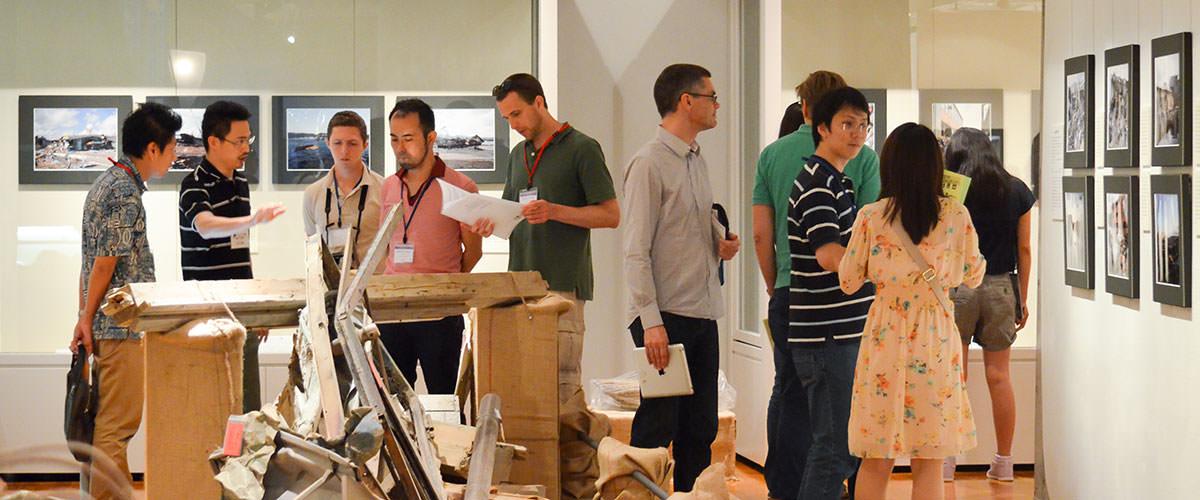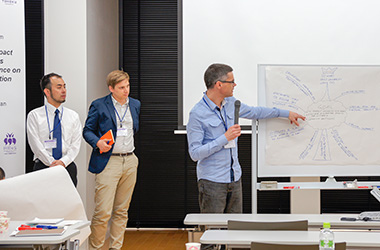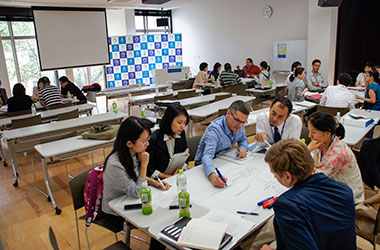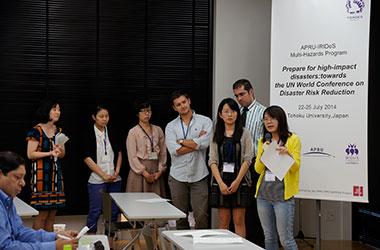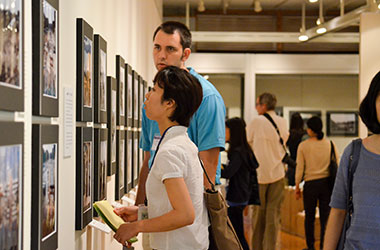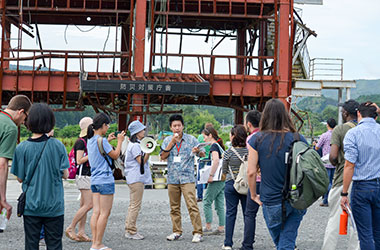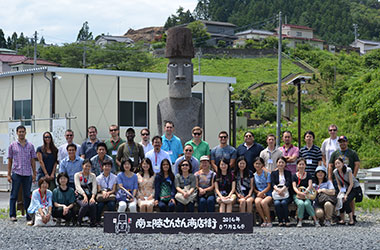“Prepare for high-impact disasters:
towards the UN World Conference on Disaster Risk Reduction”
The 2014 summer school was organized on July 22–25, 2014 at Tohoku University and attended by 47 participants from 7 countries (Australia, China, Japan, New Zealand, Philippines, Singapore and USA). This year’s summer school consisted of a seminar with a series of presentations as well as group discussions on campus safety and regional priorities in DRR. A field trip was also conducted to Kesennuma City, which was very severely affected by the 2011 disaster. This was an opportunity to learn about the experiences of the affected city and people as well as the recovery progress and efforts by local citizens.
The 2014 Multi-Hazards Summer School aimed to:
- Understand the mechanism of the international disaster risk reduction strategy;
- Learn the experiences and recovery process from the 2011 Great East Japan Earthquake and Tsunami;
- Discuss the recommendations towards the UN World Conference on Disaster Risk Reduction in March 2015 in Sendai, Japan
- Discuss the disaster preparedness on campus and develop an action plan.
“What was remarkable for me to see, among the tsunami survivors, and the rest of their stakeholders, is their optimism and the steadfast support they had for each other. Natural disasters may be beyond man’s control, but it really matters a lot on how man prepares before such calamities happen, and how they handle, socially, scientifically and psychologically, its aftermath.” (Dean, University of the Philippines Cebu)
“The Multi-Hazards Summer School is a truly beneficial experience on many levels. It allows us to appreciate the full range of efforts to minimize the effects of future disasters, from computer simulations to urban planning to community outreach and education. I am very lucky an dvery grateful to have attended and I hope tha the attendance to future Multi-hazards summer schools will nly increase” (Ph.D. student, Physics Department, University of California, Davis)
Report
-
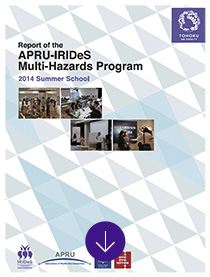
- Report Summer School 2014
– 6.4MB – - Download
The agenda of the 2014 Summer School:
22 July 2014
| 09:00-09:40 | Opening |
|---|---|
| 09:40-10:25 | Introduction of IRIDeS and its activities (Prof. Makoto Okumura, IRIDeS) |
| 10:25-10:55 | Coffee break |
| 10:55-11:55 | Disaster medical and public health management as DRR/DRM (Prof. Shinichi Egawa, IRIDeS) |
| 11:55-13:00 | Lunch |
| 13:00-14:00 | A Practical Guide to Global Earthquake Forecasting (Prof. John Rundle, University of California, Davis) |
| 14:00-15:00 | Disaster (Dr. Shinya Horie, Graduate School of Environmental Studies, Tohoku University) |
| 15:00-15:20 | Coffee break |
| 15:20-16:20 | Tasks and Problems for Reconstruction works from the Disaster (Prof. Yasuaki Onoda, IRIDeS) |
| 16:20-17:20 | Hyogo Framework for Action: Review from a Viewpoint (Prof. Osamu Murao, IRIDeS) |
23 July 2014
| 09:00-10:00 | Disaster evacuation drill: Run-up, Japan! (Dentsu Inc.) |
|---|---|
| 10:00-11:00 | Data are not enough: reducing risk through information services (Dr. Heather Bell, Pacific Tsunami warning Center, Hawaii) |
| 11:00-11:20 | Coffee break |
| 11:20-12:40 | Towards disaster resilient city (Mr. Manabu Suzuki, Tagajo City) |
| 12:40-13:40 | Lunch |
| 13:40-14:00 | Campus safety survey (Assoc. Prof. Takako Izumi, IRIDeS) |
| 14:00-15:30 | Group discussion1:Campus safety |
| 15:30-15:45 | Coffee break |
| 15:34-17:00 | Group presentation and discussion |
24 July 2014
Field visit to Kesennuma
25 July 2014
| 09:30-10:45 | Practical Education Program for Improving Response Capability to Survive from Tsunami (Ms. Mari Yasuda, IRIDeS) |
|---|---|
| 10:45-11:05 | Coffee break |
| 11:05-12:00 | UN World Conference on Disaster Risk Reduction (Mr. Kazuyuki Numata, Sendai City) |
| 12:00-13:00 | Lunch |
| 13:00-15:00 | Group discussion 2: Recommendations towards 2015 UNWCDRR) |
| 15:00-15:20 | Coffee break |
| 15:20-16:30 | Group presentation and discussion |
| 16:30-16:45 | Closing |

